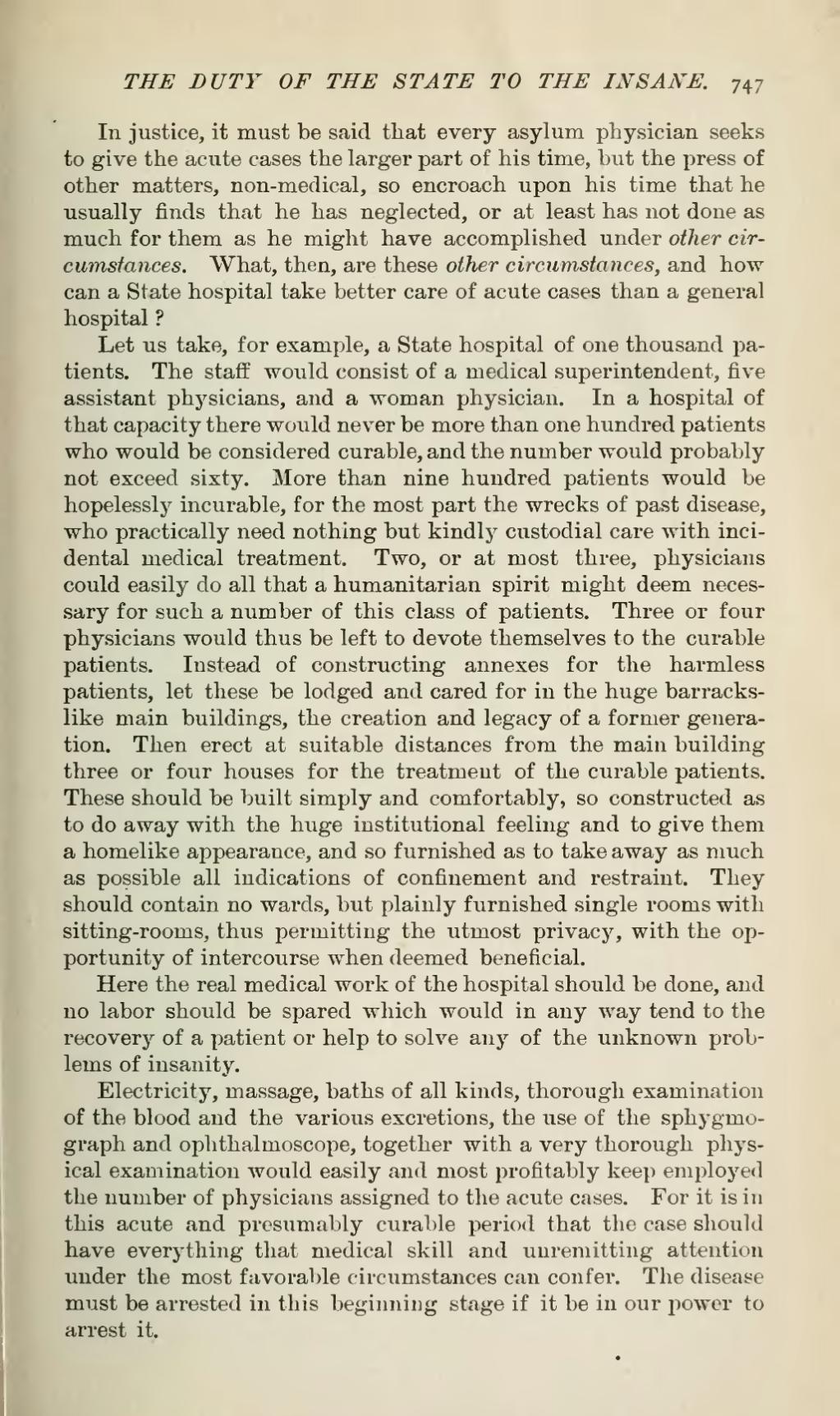In justice, it must be said that every asylum physician seeks to give the acute cases the larger part of his time, but the press of other matters, non-medical, so encroach upon his time that he usually finds that he has neglected, or at least has not done as much for them as he might have accomplished under other circumstances. What, then, are these other circumstances, and how can a State hospital take better care of acute cases than a general hospital?
Let us take, for example, a State hospital of one thousand patients. The staff would consist of a medical superintendent, five assistant physicians, and a woman physician. In a hospital of that capacity there would never be more than one hundred patients who would be considered curable, and the number would probably not exceed sixty. More than nine hundred patients would be hopelessly incurable, for the most part the wrecks of past disease, who practically need nothing but kindly custodial care with incidental medical treatment. Two, or at most three, physicians could easily do all that a humanitarian spirit might deem necessary for such a number of this class of patients. Three or four physicians would thus be left to devote themselves to the curable patients. Instead of constructing annexes for the harmless patients, let these be lodged and cared for in the huge barracks-like main buildings, the creation and legacy of a former generation. Then erect at suitable distances from the main building three or four houses for the treatment of the curable patients. These should be built simply and comfortably, so constructed as to do away with the huge institutional feeling and to give them a homelike appearance, and so furnished as to take away as much as possible all indications of confinement and restraint. They should contain no wards, but plainly furnished single rooms with sitting-rooms, thus permitting the utmost privacy, with the opportunity of intercourse when deemed beneficial.
Here the real medical work of the hospital should be done, and no labor should be spared which would in any way tend to the recovery of a patient or help to solve any of the unknown problems of insanity.
Electricity, massage, baths of all kinds, thorough examination of the blood and the various excretions, the use of the sphygmograph and ophthalmoscope, together with a very thorough physical examination would easily and most profitably keep employed the number of physicians assigned to the acute cases. For it is in this acute and presumably curable period that the case should have everything that medical skill and unremitting attention under the most favorable circumstances can confer. The disease must be arrested in this beginning stage if it be in our power to arrest it.
